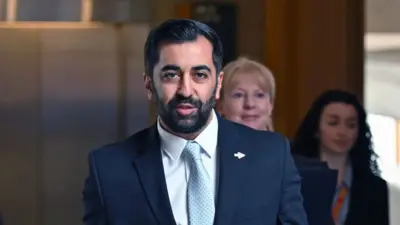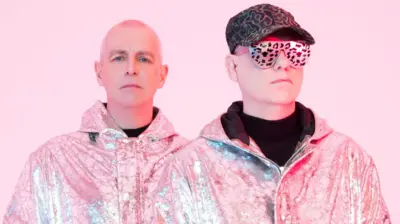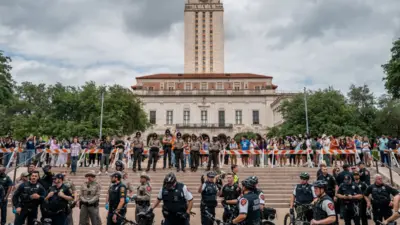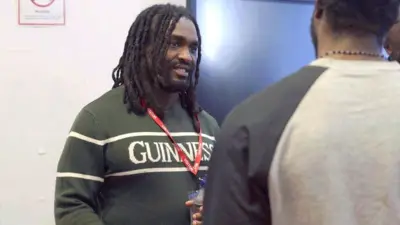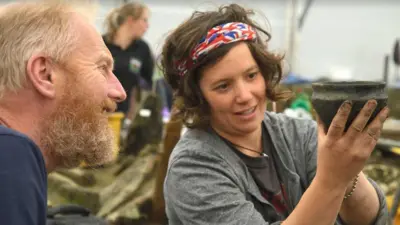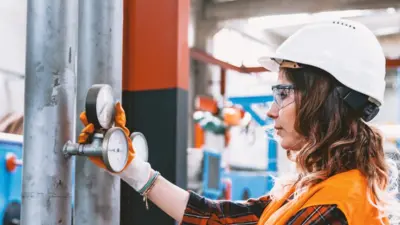We've updated our Privacy and Cookies Policy
We've made some important changes to our Privacy and Cookies Policy and we want you to know what this means for you and your data.
Covid-19: Javid's ‘normal Christmas’ vow and difficult launch for Scotland’s vaccine passports
Here are five things you need to know about the coronavirus pandemic this Monday evening. We'll have another update for you tomorrow.
1. Health secretary promises a normal Christmas
Health Secretary Sajid Javid said he believes people will be able to celebrate Christmas as normal this year, after 2020's festivities were cancelled for millions due to Covid restrictions. While he said the virus is "unpredictable" and there is always a risk of a more dangerous variant emerging, he said he thinks "we'll have a normal Christmas". With the latest figures showing one in 55 people in England is infected, Javid urged people to keep playing their part but said it was not necessary yet to implement the Plan B rules. Those would include face masks being made mandatory again in certain places, the introduction of Covid passports and advice being issued to work from home. The health secretary also said he was "minded" to make vaccination compulsory for NHS staff.
Image source, Getty Images
2. Hundreds refused entry as Scotland's vaccine passports launch
Staff at nightclubs and other venues refused entry to people without proof of vaccination status 550 times on the launch weekend of Scotland's vaccine passports. Some staff were abused said the Scottish Hospitality Group, as it branded the weekend an "unmitigated disaster". Some venues closed early and footfall was down by 40%. But the Scottish government has said it is a proportionate health measure that will encourage vaccination and prevent venues having to close during a "potentially very difficult winter".
Image source, Getty Images
3. Coronavirus linked to rare neurological condition
A UK study based on records of 32 million patients has shown that people are more likely to get a rare neurological condition known as Guillain-Barre Syndrome (GBS) if they are infected with coronavirus rather than being vaccinated. GBS, which is associated with some other infections and linked to some vaccines, causes inflammation of the nerves and can lead to numbness, weakness and pain - starting in the limbs and potentially spreading to the chest and face. It's treatable and most people recover, but it can be life-threatening. There were 38 additional GBS cases for every 10 million adults taking the AstraZeneca vaccine, but 145 per 10 million among those infected.
Image source, Getty Images
4. People behaving as if pandemic is over, warns Wales' top doctor
As Wales' infection rate reached a record high of 717 cases per 100,000 people - the highest rate in the UK - the nation's chief medical officer warned that some people are ignoring face mask laws and not observing social distancing. Dr Frank Atherton said most people were behaving cautiously but "there is a sense in other places that it is all over". He said he had seen people crowding into taxis on nights out without face masks and leisure centres overcrowded, offering opportunities for the virus to spread. "More draconian measures" may be needed if people did not work to reduce infection rates, he said.
5. Last call for Northern Ireland's £100 Spend Local cards
The deadline to apply for a free £100 prepaid card to spend in Northern Ireland's high streets expires at midnight - with 1.4 million people having already already requested one. The £145m Spend Local scheme was launched last month to try and boost businesses hit hard by the pandemic. It offers residents a prepaid debit card which can be used it any shop that takes card payments in Northern Ireland. With 500,000 already sent out, Economy Minister Gordon Lyons said he expects the remaining 900,000 will be issued this week, giving shoppers four weeks to make their purchases before the expiry date.
Image source, Department for the Economy
And don't forget...
You can find more information, advice and guides on our coronavirus page.
Children aged 12 to 15 can now book vaccinations if they have not received the jab in school. Find out what you need to know about young people and the vaccines here.
Image source, BBC
What questions do you have about coronavirus?
In some cases, your question will be published, displaying your name, age and location as you provide it, unless you state otherwise. Your contact details will never be published. Please ensure you have read our terms & conditions and privacy policy.
Use this form to ask your question:
If you are reading this page and can't see the form you will need to visit the mobile version of the BBC website to submit your question or send them via email to YourQuestions@bbc.co.uk. Please include your name, age and location with any question you send in.
- POLICE VS RIOTERS: Exclusive footage and interviews from the storming of the US Capitol Building
- FROM THE FIRST WORLD WAR TO 16TH-CENTURY NOBILITY: Judi Dench explores her family history
Top Stories
Features & Analysis
Most read
Content is not available

